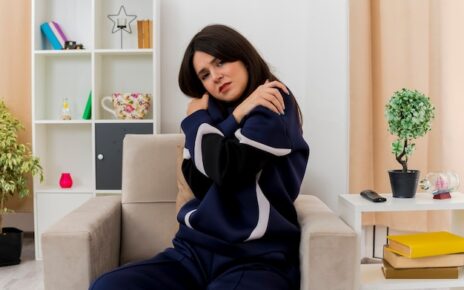Introduction
Anxiety disorders are becoming more common in today’s fast-paced environment, impacting millions of people around the globe. While traditional therapies like therapy and medication are commonly used, many people choose alternative, holistic techniques to manage their anxiety. In this post, we’ll look at holistic alternatives that can supplement orthodox therapies, providing relief and enhancing overall health and anxiety disorder.

MindFulness Meditation:
Mindfulness meditation has been shown to significantly reduce anxiety symptoms. This technique is focusing on the present moment and accepting thoughts and feelings without judgement. According to research, frequent mindfulness meditation can reduce anxiety by developing calm and self-awareness.
Yoga and Tai Chi:
Both yoga and Tai Chi combine gentle movements with breath work, promoting relaxation and stress reduction. These practices not only improve physical health but also foster mental clarity and emotional balance. Incorporating yoga or Tai Chi into a daily routine can help alleviate symptoms of anxiety and enhance overall quality of life.
Acupuncture:
Acupuncture, an ancient Chinese healing technique, involves inserting thin needles into specific points on the body to restore balance and promote healing. Studies have shown that acupuncture can effectively reduce anxiety levels by stimulating the release of endorphins, the body’s natural painkillers, and promoting relaxation.
Herbal Remedies
Several herbal remedies have been found to be effective in reducing anxiety symptoms. Examples include chamomile, passionflower, and valerian root. These herbs contain compounds that have calming and sedative effects, helping to alleviate feelings of anxiety and promote relaxation. However, it’s essential to consult with a healthcare professional before incorporating herbal remedies into your treatment plan, as they may interact with certain medications.
Aromatherapy
Aromatherapy involves using essential oils derived from plants to promote physical and psychological well-being. Certain essential oils, such as lavender and bergamot, have been shown to have calming properties and can help reduce anxiety levels when used in aromatherapy diffusers or applied topically. Incorporating aromatherapy into your daily routine can provide a sense of calm and relaxation.
Diet and Nutrition
Diet plays a crucial role in mental health, and certain foods can either exacerbate or alleviate anxiety symptoms. Consuming a balanced diet rich in fruits, vegetables, whole grains, and lean proteins can provide essential nutrients that support brain function and regulate mood. Additionally, avoiding excessive caffeine and sugar intake can help prevent spikes in anxiety levels.
Exercise
Regular physical activity is not only beneficial for physical health but also for mental well-being. Exercise promotes the release of endorphins, which are natural mood lifters, and reduces levels of stress hormones such as cortisol. Engaging in activities such as walking, jogging, or dancing can help reduce anxiety symptoms and improve overall mood.
Art Therapy
Art therapy involves using creative expression as a means of communication and self-discovery. Engaging in activities such as painting, drawing, or sculpting can help individuals explore and process their emotions, reducing feelings of anxiety and promoting relaxation. Art therapy can be particularly beneficial for individuals who struggle to verbalize their feelings.
Music Therapy
Music has a powerful effect on mood and can be used therapeutically to reduce anxiety levels. Listening to calming music or playing musical instruments can help individuals relax and alleviate symptoms of anxiety. Music therapy techniques such as guided imagery and relaxation exercises can be effective in promoting emotional well-being.
Social Support
Building a strong support network of friends, family, and peers can provide invaluable emotional support during times of anxiety. Sharing experiences and feelings with others who understand can help individuals feel less isolated and more understood. Seeking support from a therapist or support group can also provide guidance and encouragement on the journey to managing anxiety.
Conclusion
In conclusion, holistic approaches to treating anxiety disorders offer a multifaceted approach that addresses the mind, body, and spirit. By incorporating practices such as mindfulness meditation, yoga, acupuncture, herbal remedies, aromatherapy, diet and nutrition, exercise, art therapy, music therapy, and social support into a comprehensive treatment plan, individuals can effectively manage their anxiety symptoms and improve their overall quality of life. It’s essential to work closely with healthcare professionals to determine the most suitable holistic interventions for your unique needs and to ensure that they complement conventional treatments effectively.





One Reply to “Holistic Approaches to Treating Anxiety Disorders:”
Comments are closed.